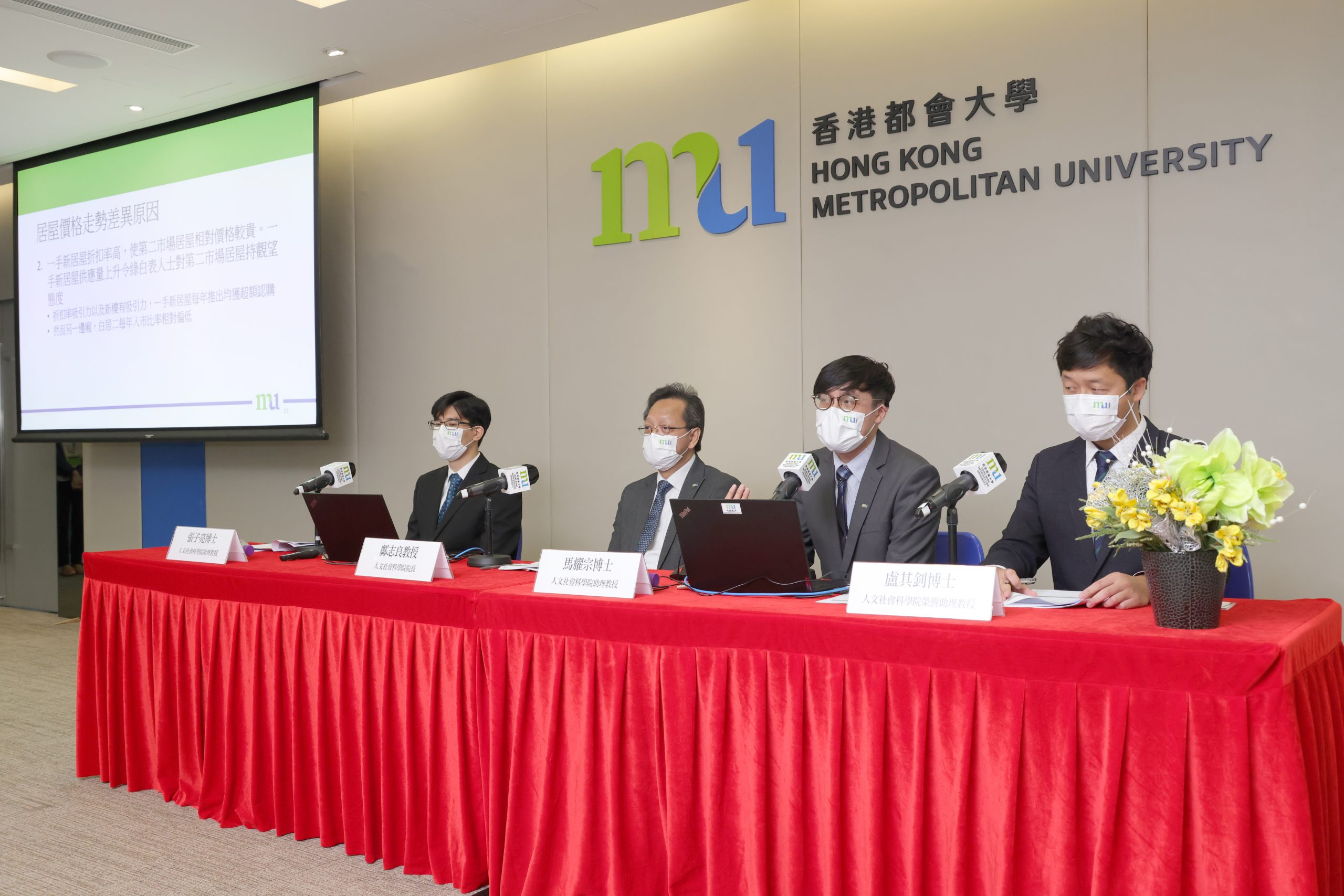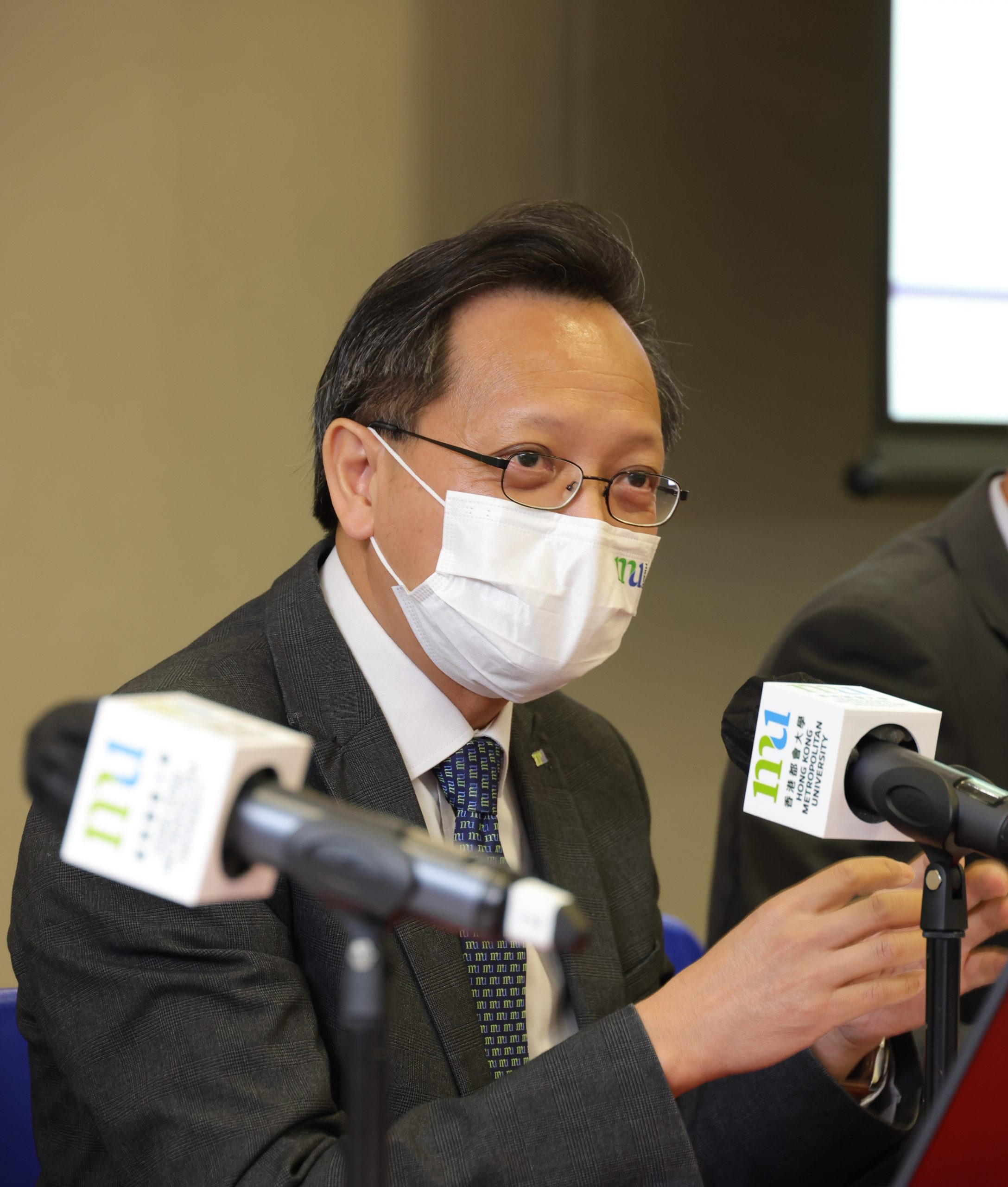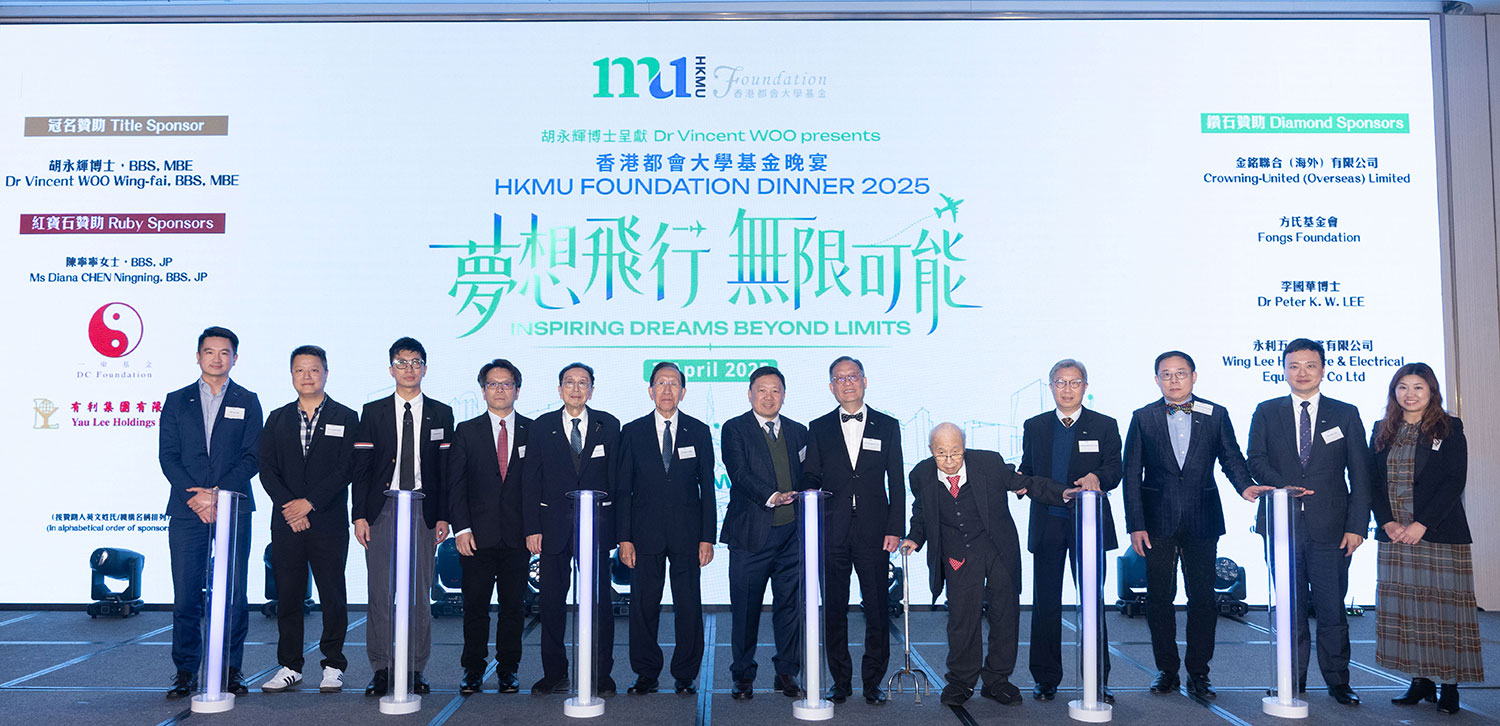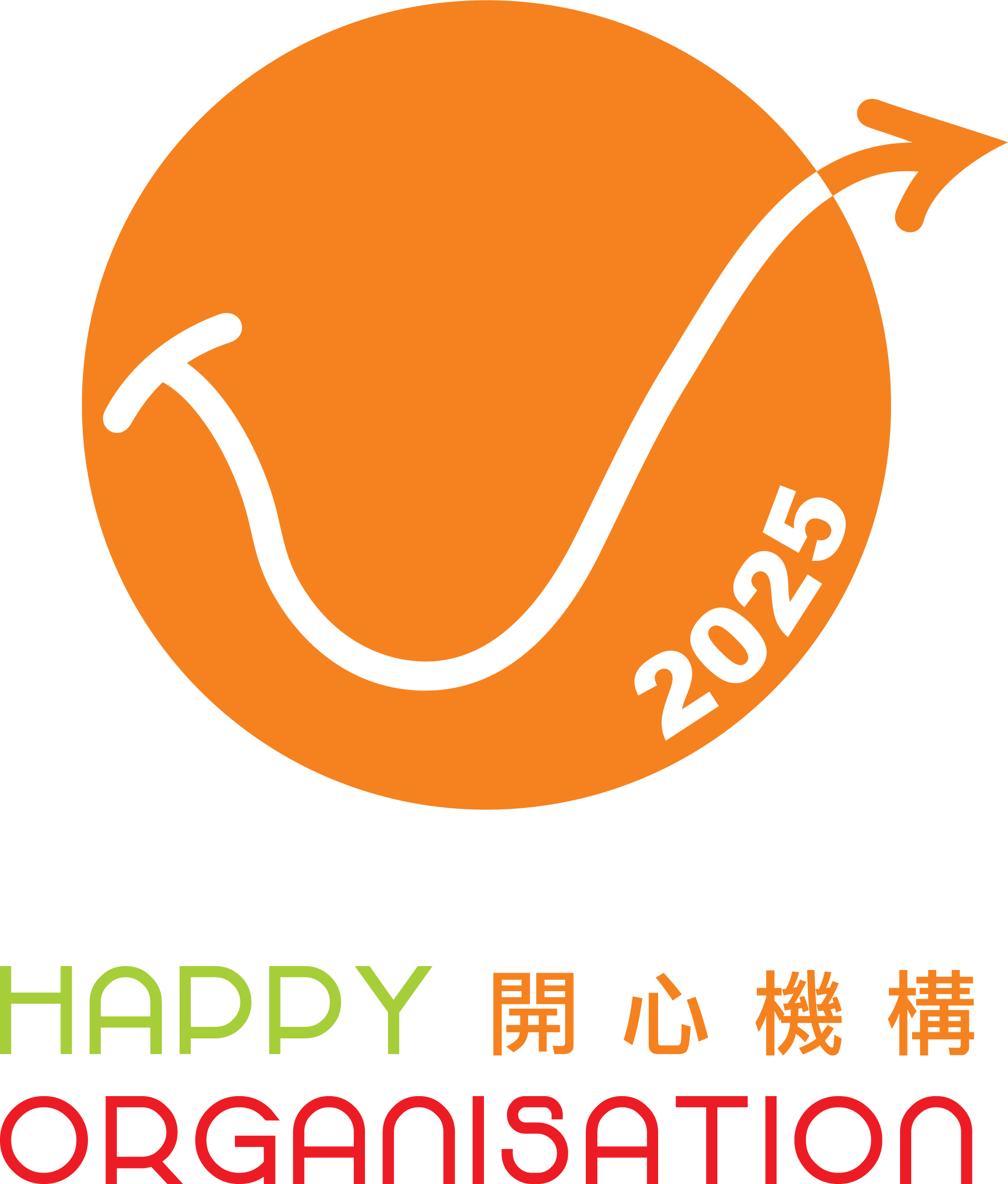The Public and Social Policy Research Centre, under the School of Arts and Social Sciences of Hong Kong Metropolitan University (HKMU), recently used the “HKMU HOS Price Index” (formerly the “OUHK HOS Price Index”) to examine the difference in price trends between the Home Ownership Scheme (HOS) secondary market and the private property market in Hong Kong during the pandemic. The study found that local HOS secondary market prices were affected by the pandemic to a certain extent and showed a significant difference from the price of private housing.
The research team, led by Prof. Charles Kwong Che-leung, Dean of the School of Arts and Social Sciences, with members including Assistant Professor Dr Arbitor Ma Yiu-chung, Assistant Professor Dr Eddie Cheung Chi-leung, and Honorary Assistant Professor Dr Roger Lo Ki-chiu, announced the research findings at a press conference held today (11 July).
According to past data collected by the team, price levels in both the HOS secondary market and the private property market were increasing, but subsidized housing prices rose more significantly than private market prices. However, an analysis of transaction and price changes in subsidized housing in the HOS secondary market from January 2020 to May 2022 showed that prices of HOS housing weakened since the beginning of the epidemic in 2020, dropping by nearly 10%. In contrast, the price of private housing increased by about 0.5% to 2.7% during the same period.
The team suggested three reasons for the change. First, the relatively large increase in subsidized housing prices over the past decade led to a decrease in the actual discount. Coinciding with the recent slowdown in the property market, subsidized housing, with lower liquidity, became less attractive. Second, the high discount rate of new HOS flats in recent years made prices in the HOS secondary market relatively expensive, and the rise in the supply of new HOS flats has kept green and white form applicants on the sidelines. The third reason involves recent economic factors. According to statistics from the Census and Statistics Department, the pandemic impact has been greater for certain sectors, such as construction, retail and manufacturing, and on the income of primary and middle-level households, which reduced the willingness and ability of potential buyers to purchase flats in the HOS secondary market.
Prof. Kwong and his team pointed out that the price adjustments in the HOS secondary market reflect the well-functioning market mechanism. They therefore suggest that no excessive regulation is required. In addition, the Government's provision of more mortgage options for home owners in the long run will help revitalize transactions and ensure the stable development of the HOS market.
HKMU started constructing the “HKMU HOS Price Index” in 2020. Fifty HOS estates with the highest transaction volume were selected as the constituent estates of the index. The Hedonic Pricing Model was adopted to analyse the market price per square foot of all constituent estates. The HKMU HOS Price Index is calculated as the ratio of the market value of all constituent estates in the current and base period. The Index provides an indicative reference for development trends in Hong Kong’s HOS secondary market and helps policy makers evaluate the impact of various housing policies and economic conditions on the subsidized housing market.
About the “HKMU HOS Price Index”:
https://ss.hkmu.edu.hk/public-and-social-policy-research-centre/hkmu-home-ownership-scheme-hos-price-index/





















